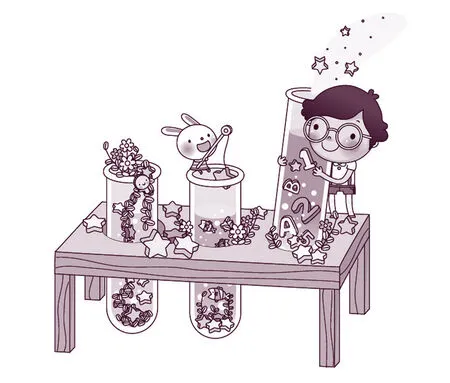听力实验室(二)
2017-12-06杜倩供稿
杜倩供稿
听力实验室(二)
杜倩供稿

本期秘方:对话理解之短对话选择题
【题型解读】
简短对话通常是以一问一答的形式,第一位说话者一般会提出一个问题,第二位说话者紧接着进行回答。所以第二位说话者所讲的内容往往是对话的关键和结论所在,是提问的焦点。这类题型通常只设计一个问题,内容涉及时间、地点、人物、态度与反应、原因与结果、身份与职业,以及数字与计算等。
【典题分析】
听对话,从下列A、B、C三个选项中,选择一个能回答问题的正确答案。每段对话读两遍。1. Where does Henry Hunt come from?
A. She comes from England. B. He comes from England. C. His name is Henry Hunt.
2. How often does the woman go swimming?
A. Sometimes. B. Never. C. Every day.
分析:
1. 做该题时,同学们要注意听对话和提问。对话里的关键词是English boy’s name,而提问的关键是Henry Hunt来自哪里。由于是English boy,那么肯定是来自England的男孩了。故正确答案应为B项。2. 问题中的how often是对频率的提问。录音材料中虽然均出现了every day、sometimes和never等频率副词,但所提问题是针对游泳的频率,于是原文中的sometimes I go swimming便给出了答案。所以答案选A。

【录音原文】
1. W: What’s the English boy’s name, please?
M: Henry Hunt.
2. M: How often do you exercise?
W: I keep running every day, sometimes I go swimming, but I never play ball games.
【解题思路】
做此类题目时,大家首先应看问题和选项,对对话内容有个大致的了解,然后带着具体问题去听。在选答案之前,首先要浏览选项,了解有关信息并预测话题,然后要特别注意有关选项的内容。有些题目会涉及数字、电话号码、时间、日期、天气温度、飞机航班及家庭地址等,那么我们就有必要在听时做一点记录,还要带着问题去听关键信息,如谁(who)、什么事(what)、何时(when)、何地(where)、怎样(how)和为什么(why)等,这样才能提高答题的正确率。
【注意事项】
1)听前预览选项,了解一定的信息,并试着预测话题及内容。
2)听时注意抓住各小题地点与人物的名字、时间或数字的变化、职业和关系等关键信息。
3)要抓住表示句意转折的but与表示否定的not、no和nothing等关键词。在听的过程中,根据对话内容采用排除、推理、辨别等方法来选择正确答案。
【小试牛刀】
听对话,根据所听对话的内容和所提的问题,选出能回答所给问题的正确答案,每段对话读两遍。
1. Where does the woman live?
A. In the town. B. In the city. C. In the mountains.
2. What time will Sally and Kevin meet this Sunday?
A. At six. B. At seven. C. At eight.
3. Who has a fever?
A. Jim. B. Michael. C. Michael’s mother.
4. What will Lily do?
A. Go fishing. B. Go for a snack. C. Go hiking.
5. What is the weather tomorrow?
A. Windy. B. Rainy. C. Sunny.
6. Why is Tom feeling sad?
A. Because he failed the English exam.
B. Because he has no friends to talk with.
C. Because he doesn’t know whom to talk with.
7. How much will the man pay?
A. $2.15. B. $2.50. C. $5.
8. What does the woman mean?
A. It’s time to go to bed.
B. It’s too early to go to bed.
C. She has too much work to do.
9. What did Maria spend the whole night doing?
A. Writing her report. B. Sleeping. C. Studying for the test.
10. What are the flowers made of?
A. Plastic. B. Paper. C. Silk.
【录音原文】
1. M: Hi, Jenny. Do you live in the city or in the town?
W: Neither, I live in the mountains. The air there is so fresh.
2. W: Hello, it’s Sally. Is Kevin there?
M: No, he’s still in bed. What’s up?
W: Oh, just tell him to meet me earlier this Sunday at seven, not eight.
M: OK.
3. W: Jim, are you setting the table for your friends?
M: Yes, Mom.
W: Just set three places. Michael isn’t able to come. He has a fever. His mother called just now.
4. M: Today we have nothing to do. Why not go fishing, Lily?
W: That’s a good idea.
M: And after that, let’s go for a snack somewhere.
W: No, thanks. I really don’t feel like eating.
5. M: It’s going to be nice tomorrow—quite warm and sunny.
W: Really? That’s great!
M: I know. It’s good! It has been so wet and windy recently.
6. W: Hi, Tom. How are you feeling today?
M: I’m feeling very sad, because I failed the English exam.
W: That’s too bad, Tom! Why don’t you talk to someone?
M: I want to, but I don’t know how to talk with others about it.
7. M: I’d like some coffee, please.
W: Large or small?
M: Small, please. And how much is it?
W: Two dollars and fifty cents.
M: OK, two small ones, please.
8. M: What’s the matter, Helen?
W: I’m tired. I’d like to have a rest.
M: Why don’t you go to bed?
W: It’s only nine o’clock.
9. M: You look tired, Maria. What did you do last night?
W: I’m very sleepy now, because I spent the whole night writing my report.
10. M: Those flowers are so beautiful! They look just like real ones. Are they made of silk or plastic?
W: Neither. I used paper to make them.
M: You are so talented!
